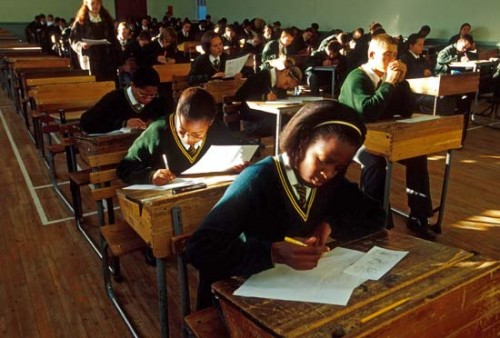Nigerian universities will soon experience total closure as the three remaining trade unions in the university system have threatened to commence indefinite and total strike following government’s failure to fully implement the 2009 agreement it signed with varsity workers.
Barely three weeks into the strike embarked on by the Academic Staff Union of Universities (ASUU), the Senior Staff Association of Nigeria Universities (SSANU), the National Association of Academic Technologists (NAAT), and the Non-Academic Staff Union of Educational and Associated Institutions (NASU) declared at a conference in Abuja on Friday that they were getting set for a showdown with the government.
Under the Joint Action Committee (JAC) of SSANU, NAAT and NASU, the unions lamented the failure of the Federal Government to begin full implementation of an agreement it entered with them since 2009, stating that they would resume the strike they suspended in March this year.
The threat came just as their teaching counterpart, ASUU also rejected all appeals made to it to call off its strike and allow for negotiation to continue. Rather, ASUU delared that the strike would go on as planned.
NASU President, Comrade Ladi Iliya, who read a joint press statement by the unions, listed the main issues in contention as the funding of university education, the Earned Allowance and the NEEDS assessment report, which was targetted at mass sack of the non-teaching staff working in the universities.
According to Iliya, since 2009, several representations had been made to the government and the implementation committee set up by the government itself without results.
“It appears as if government is taking our understanding for granted thereby putting us under unbearable pressure from our members whose patience is fast running out.
“It is in light of this that JAC is calling on Nigerians to prevail on government to address all burning issues within the shortest possible time, failure of which we may not be able to continue to hold our members back from resuming our earlier suspended strike action without notice,” Iliya said.
According to her, the Federal Government has consistently failed to honour agreements, particularly on a systemic increase in the funding of the universities by releasing N100 billion yearly to federal universities consecutively for four years effective from January, 2012.
But more than a year that the circular on it was released, government had not made available a kobo in respect of the undertaking, she stated.
On the Earned allowances which include “occupational hazard allowance, responsibility allowance and head section/unit allowance,” the NASU president said the government has also not made any effort to include it in the national budget, even though it has accumulated to huge arrears.
Also, the three non-teaching unions faulted the report of a Needs Assessment Committee of Nigerian public universities headed by Professor Mahmud Yakubu in 2012.
Iliya stated that such important committee was instituted without the inclusion of members of the non-teaching staff of Nigerian public universities, and most especially the students who are the major stakeholders.
Iliya said: “As expected, the report of the committee was full of misrepresentation of facts, inflated figures and badly skewed data against the non-teaching staff in the university system, thereby misinforming both the public and the government.”
Iliya called on well-meaning Nigerians to prevail on the government to implement the agreement it freely enter into with the workers to avoid plunging the nation’s universities into another round of needless crisis.
She noted that the non-teaching unions had exercise serious restraints to embark on strikes in the interest of the students, government and in protection of good academic standard.
She said: “As responsible unions who are sensitive to public opinions and have interest of students and the national interest at heart, we have been weary of strike actions in the past and have done everything humanly possible to sustain industrial peace in our universities even in the face of government insensitivity and pressure from our members.”

